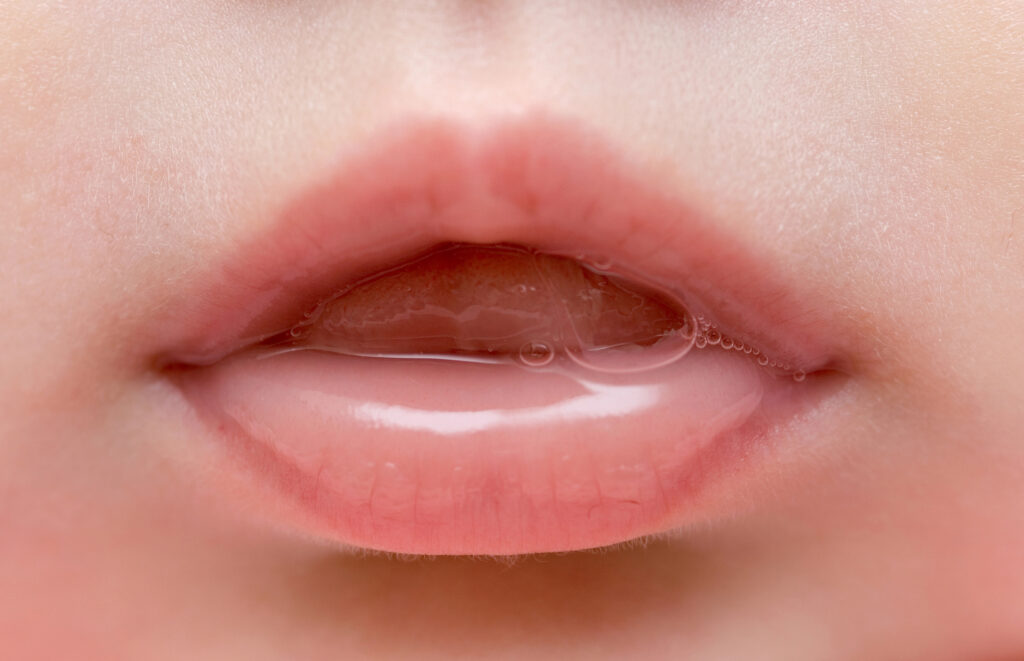What’s The Best Way to Floss
We all know we should floss, but it can be tough. Part of this is because flossing can feel like an extra task in an already busy day, but it...

Now that we mentioned saliva, your mouth may be watering. Or you might go the other way and notice that your mouth is dry instead. Even though saliva is part of our lives from day one, it is something we barely notice…until we do. But just because you don’t think about saliva very much, that doesn’t mean it’s not important.
So we bet you’re wondering why we have saliva and how important it actually is. Read on to find out!
98% of saliva is water. But saliva is much more complex than that. The remaining 2% is a mixture of enzymes, minerals, proteins, and antimicrobial agents. These components work together to keep your mouth healthy and functioning for everyday life.
Saliva is made by the salivary glands. While it is always present, saliva production varies throughout the day, including increasing in response to food.
Saliva does more than just keep your mouth from drying out. Here’s a closer look at the important tasks it performs each and every day.
One of saliva’s main jobs is to act as the body’s natural rinsing system. Every time you swallow, saliva washes away food particles and debris, reducing the risk of plaque buildup. Additionally, its enzymes break down sugars and starches, which can cause cavities.
Without enough saliva, bacteria and acids linger, leading to bigger oral health issues, such as tooth decay or gum disease.
Saliva contains minerals like calcium and phosphate, which keep your tooth enamel strong and healthy. When enamel is exposed to harmful acids, saliva helps to neutralize them and repair minor damage in the enamel to prevent decay.
Saliva acts as a lubricant, making it easier for you to form words, allowing teeth and soft tissue in your mouth to comfortably coexist, and enabling food to travel smoothly down your throat.
Saliva is more important to digestion than you might realize. It contains the enzymes that begin breaking down starches in your food as soon as the first bite. This not only kickstarts the digestive process but also helps your stomach handle food more efficiently. Chewing combined with saliva makes foods soft, making swallowing safer and more efficient.
Did you know you wouldn’t be able to fully enjoy the flavor of your food without saliva? Saliva carries molecules from the food you eat to the taste buds on your tongue. Without it, food would taste bland and less appealing.
Saliva actively fights against harmful bacteria and other microorganisms. Its antimicrobial enzymes and proteins inhibit the growth of these organisms, providing a first line of defense for resisting infections.
Saliva does so much that it’s easy to take for granted—until it’s gone. A reduced saliva flow can lead to a condition called xerostomia, or dry mouth. People with dry mouth are more prone to cavities, bad breath, and gum disease, not to mention discomfort while eating or speaking.
Causes of dry mouth can range from certain medications to dehydration or illnesses like Sjögren’s Syndrome. If you’re experiencing persistent dry mouth, it’s worth discussing it with your dentist or doctor, as we can help find solutions to improve your saliva production and protect your oral health.
If you’d like to learn more about saliva or have concerns that you might not be producing enough, ask at your next scheduled check up. Or, better yet, call to book a dental appointment now!